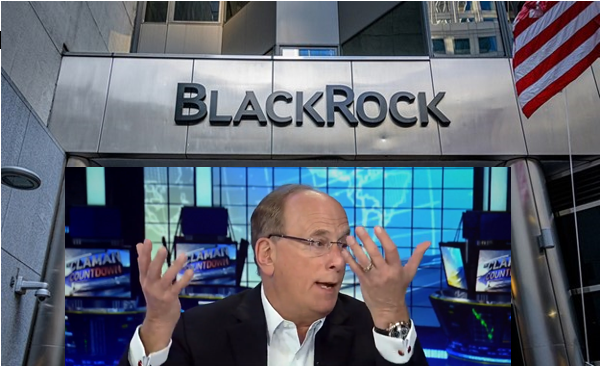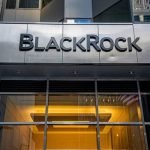Larry Fink, the CEO of BlackRock, has said that Russia’s invasion of Ukraine marks the end of globalization.
Larry Fink, whose asset management company oversees an investment portfolio equivalent to half of US GDP, made the statement in a letter to Investors on Thursday, 24th March 2022.
Also read; Ethiopian Government declares indefinite humanitarian truce to allow aid into Tigray
In the letter addressed to BlackRock Shareholders, seen by Investogist, the man is reported to have built BlackRock from $0 to handling more than $10 trillion dollar said;
In the early 1990s, as the world emerged from the Cold War, Russia was welcomed into the global financial system and given access to global capital markets. In time, Russia became interconnected with the world and deeply linked to Western Europe. The world benefited from a global peace dividend and the expansion of globalization. These were powerful trends that accelerated international trade, expanded global capital markets, increased economic growth, and helped to dramatically reduce poverty in nations around the world.
It was during this time that we started, 34 years ago, to build BlackRock. We saw the rise of globalization and growth of the capital markets fueling a need for the kind of technology-driven asset management that we believed we could bring to our clients. We believed the world would come closer together. And we saw that happen. I remain a long-term believer in the benefits of globalization and the power of global capital markets. Access to global capital enables companies to fund growth, countries to increase economic development, and more people to experience financial well-being.
But the Russian invasion of Ukraine has put an end to the globalization we have experienced over the last three decades. We had already seen connectivity between nations, companies and even people strained by two years of the pandemic. It has left many communities and people feeling isolated and looking inward. I believe this has exacerbated the polarization and extremist behavior we are seeing across society today.
The invasion has catalyzed nations and governments to come together to sever financial and business ties with Russia. United in their steadfast commitment to support the Ukrainian people, they launched an “economic war” against Russia. Governments across the world almost unanimously imposed sanctions, including taking the unprecedented step of barring the Russian central bank from deploying its hard currency reserves.
Russia’s aggression in Ukraine and its subsequent decoupling from the global economy is going to prompt companies and governments worldwide to re-evaluate their dependencies and re-analyze their manufacturing and assembly footprints – something that Covid had already spurred many to start doing.
And while dependence on Russian energy is in the spotlight, companies and governments will also be looking more broadly at their dependencies on other nations. This may lead companies to onshore or nearshore more of their operations, resulting in a faster pull back from some countries. Others – like Mexico, Brazil, the United States, or manufacturing hubs in Southeast Asia – could stand to benefit. This decoupling will inevitably create challenges for companies, including higher costs and margin pressures. While companies’ and consumers’ balance sheets are strong today, giving them more of a cushion to weather these difficulties, a large-scale reorientation of supply chains will inherently be inflationary.
Given the vast amount of funds being handled by Fink’s BlackRock, his views are closely watched by investors. As RT put it, “In fact, the billionaire wields so much financial clout that his thoughts can be self-fulfilling, to some degree. Among other implications, he said he sees the Ukraine crisis accelerating the development of digital currencies and speeding the shift away from fossil fuels.”
Investopedia has defined Globalization is the spread of products, technology, information, and jobs across national borders and cultures. In economic terms, it describes an interdependence of nations around the globe fostered through free trade.
Speaking to Fox Business on Thursday, Larry Fink, who has over 40 years experience in the markets, believe that the impact of the ongoing war and the western response will be more impactful than the 2007-2008 Financial crisis.
“I think this is potentially much broader and bigger than the global world,” he said while asked to compare the current crisis with the financial crisis of 2008.
He went on to explain that what we are witnessing may turn out to be more treacherous than what happened in 2008;
The financial crisis of 2008 largely destroyed banks and a lot of people’s livelihood, who has leverage. But keep in mind when you see the increase in wheat {prices} to the extent it is, what it could mean for everybody. When you see the increases of gasoline, and what it means for everybody in heating, this is not just a segment of the economy or segment of the world.
This is the entire world, this is going to be impacting everybody. This is so regressive for so many people, who are in need who can’t afford the price of gas or price of food.
This is much more impactful of someone who is leveraged in mortgages, and so that was a segment of society that was destroyed.
This is more pennaceous and troublesome that it affects everyone.
In the letter to shareholders, BlackRock points out that it is proud of its support for refugees fleeing their homes {in Ukraine} and that it has joined the global effort to isolate Russia from financial markets.
The extent of the isolation as one can infer from the letter was in the suspension of the purchase of any Russian securities in our active or index portfolios.
BlackRock never had significant investments in Russia for the vast majority of our portfolios, according to a section of the same letter to Shareholders.
Nnamdi Maduakor is a Writer, Investor and Entrepreneur
























































